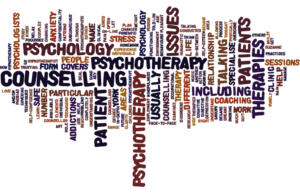
Psychotherapy, also known as talk therapy or counseling, is a form of treatment that aims to help individuals with mental health and emotional issues. It involves talking with a trained mental health professional who listens and helps the individual understand their thoughts, feelings, and behaviors in a safe and supportive environment.
The goal of psychotherapy is to help individuals overcome challenges and improve their mental health. This can include addressing specific problems such as depression, anxiety, or relationship issues, or it can involve exploring broader aspects of a person’s life and addressing any underlying psychological issues.
There are many different types of psychotherapy, each with its own approach and techniques. Some of the most common types of psychotherapy include:
- Cognitive-behavioral therapy (CBT): CBT is a form of psychotherapy that focuses on the relationship between thoughts, feelings, and behaviors. The goal is to help individuals identify and change negative thoughts and behaviors that are causing distress.
- Psychodynamic therapy: Psychodynamic therapy is based on the idea that unconscious thoughts and experiences from the past can impact our current thoughts and behaviors. The goal is to explore these unconscious patterns and help individuals understand and resolve any related emotional difficulties.
- Humanistic therapy: Humanistic therapy is based on the idea that everyone has the potential for growth and self-actualization. This approach focuses on building self-awareness, empathy, and personal insight, and helps individuals find meaning and purpose in their lives.
- Interpersonal therapy (IPT): IPT is a short-term form of psychotherapy that focuses on the individual’s relationships with others. The goal is to help individuals improve their communication skills, build healthy relationships, and resolve conflicts.
- Group therapy: Group therapy involves several individuals meeting together with a therapist to explore and address common challenges. Group therapy can be an effective form of treatment for individuals struggling with anxiety, depression, or relationship issues.
The process of psychotherapy varies based on the specific approach used, but generally involves regular sessions with a mental health professional. During these sessions, the therapist listens, asks questions, and provides support and guidance to help the individual explore and understand their thoughts, feelings, and behaviors.
While psychotherapy can be a challenging process, it can also be a powerful tool for improving mental health. It offers individuals the opportunity to explore and understand their experiences in a supportive and non-judgmental environment, and helps them develop new coping skills and perspectives.
One of the benefits of psychotherapy is that it can be tailored to the individual’s specific needs and challenges. For example, someone struggling with depression may benefit from cognitive-behavioral therapy, while someone with relationship issues may find interpersonal therapy to be a better fit.
In addition, psychotherapy can be used in combination with other forms of treatment, such as medication or lifestyle changes, to provide a comprehensive approach to mental health.
While psychotherapy can be an effective form of treatment, it’s important to choose a therapist who is trained and experienced in the specific approach that’s best for your needs. A good therapist should listen carefully, provide support and guidance, and work with you to set realistic goals for treatment.
In Nutshell, psychotherapy is a powerful tool for improving mental health and well-being. With the support of a trained mental health professional, individuals can explore and understand their experiences, develop new coping skills and perspectives, and work towards a more fulfilling and meaningful life. If you’re experiencing emotional or mental health challenges, consider seeking the support of a trained psychotherapist.
- “Take control of your mental health with our expert care. Book an appointment now!”
